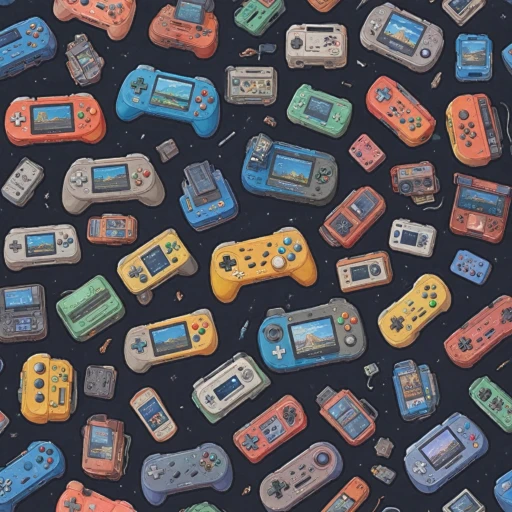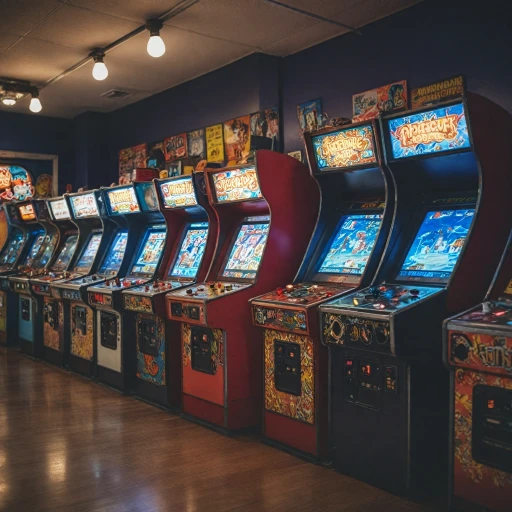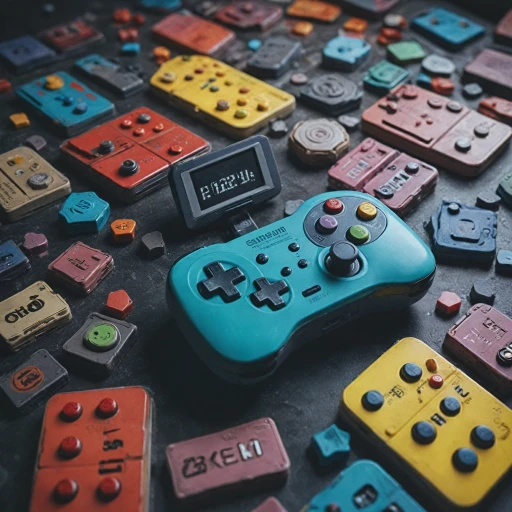
Understanding Copyright Laws in Japan
Decoding Legal Complexities
Understanding copyright laws in Japan is essential for anyone interested in game preservation or investing in the Japanese gaming market. In Japan, copyright laws are known to be both complex and stringent, owing to the nation’s efforts to protect its rich cultural and historic assets, including those tied to video games. The enforcement of these laws becomes even more nuanced when considering the global reach of Japanese gaming companies.
Japanese copyright laws grant creators exclusive rights over their works, which include video games, for a period defined by law. This ensures protection to both the individuals and companies involved in the creation process. However, it also poses challenges for the game preservation societies and historians who are keen on preserving the vast history of Japanese games. The digital era has brought innovations like digitised floppy storage and online services, which prompt updates to these laws over time.
Japan's laws emphasize the importance of respecting intellectual property and often feature collaborations with international bodies to manage copyrights better on the global stage. Game developers and members of society alike, from both Japan and the United States, navigate these laws not just to avoid legal pitfalls but to sustain cultural heritage through effective preservation efforts.
Preservationists can encounter hurdles when they aim to digitize old games, as they must ensure compliance with copyright regulations which might not always align with technological advancements such as those seen in the rise of phone games and Space Invaders. For instance, specific articles from national policy might intervene in ways that affect how much of the original content can be reproduced or shared publicly.
As we delve further into this topic, understanding the importance and methods of preserving video games becomes paramount. This forms a basis for the ongoing work to maintain the legacy of pioneering gaming experiences that have redefined going through game history. For more on the intricacies, exploring resources like the artistry of Mario Bros sprites could provide additional insights into how gaming artworks withstand the legal scrutiny of copyright over time.
The Importance of Game Preservation
The Significance of Preserving Video Game History
In the realm of video games, preserving the history of Japanese games holds immense importance. Japan has been a pivotal player in the gaming industry, contributing iconic titles like Space Invaders that have shaped the global gaming landscape. The preservation of these games is not just about maintaining a collection of old titles; it’s about safeguarding a cultural heritage that reflects the evolution of technology and society.
Game preservation efforts are crucial for several reasons:
- Cultural Significance: Japanese games are a reflection of the country's culture and technological advancements. They offer insights into the societal values and trends of their time.
- Educational Value: Preserved games serve as educational tools for game developers and historians, providing a window into the design and technological innovations of the past.
- Historical Documentation: Video games are a part of our digital heritage. Preserving them ensures that future generations can experience and learn from these digital artifacts.
As the gaming industry continues to evolve, the role of preservation societies and organizations becomes increasingly vital. These groups work tirelessly to digitize and archive games, including rare titles stored on formats like digitised floppy disks. Their efforts ensure that the rich history of Japanese video games is not lost to time.
For those interested in exploring the world of retro gaming, including classic Japanese titles, you can click expand your knowledge through dedicated articles and resources.
Challenges Faced by Preservationists
Unique Challenges Faced by Game Preservationists
Game preservationists in Japan face a distinct set of obstacles when navigating the complex landscape of preserving Japanese games. The country's stringent copyright laws and unique cultural context amplify these challenges, requiring a nuanced approach. Firstly, Japanese copyright laws present hurdles that are less prevalent in other regions, such as the United States. These laws are often rigid, complicating the preservation of video games that are deeply woven into the fabric of Japan's rich game history. Preservationists must work diligently to respect these laws while striving to maintain the integrity of the original works. Additionally, the rapidly evolving nature of video games contributes significantly to preservation difficulties. The transition from physical cartridges and discs to digital formats, including digitised floppy disks and online services, necessitates innovative methods to archive these experiences properly. The ephemeral nature of phone games and other downloadable content adds to this complexity. Another challenge is the sheer volume and diversity of Japanese games. From iconic titles like "Space Invaders" to obscure releases, preservationists are tasked with documenting an immense catalog. Each game offers a window into a different facet of Japanese society and gaming culture, emphasizing the importance of comprehensive game preservation efforts. These efforts are further hindered by the limited resources available to preservation foundations. Members of the preservation society often work with constrained budgets, driving a need for strategic partnerships with gaming companies and developers. This collaboration is crucial, as game companies hold the copyright-related keys necessary for unlocking archived materials. Despite these challenges, preservationists continue to dedicate their time and expertise to safeguarding Japan's digital heritage. Their commitment ensures future generations can experience the full spectrum of creative expression found in Japanese video games. For more insights into how creativity influences gaming identity, you might find "Exploring the creativity behind Xbox name generation" to be an enlightening read.Case Studies of Successful Preservation Efforts
Notable Preservation Success Stories
In the realm of game preservation, there have been several noteworthy efforts that highlight the dedication and creativity of preservationists. These case studies not only underscore the importance of preserving Japanese video games but also illustrate the challenges and triumphs encountered along the way.
Space Invaders: A Cultural Icon
One of the most iconic Japanese games, Space Invaders, serves as a prime example of successful preservation. Originally released in 1978, this game has been meticulously preserved through various digital formats, ensuring that its legacy endures for future generations. The preservation efforts have involved digitising floppy disks and collaborating with gaming companies to maintain the game's authenticity. This has allowed Space Invaders to remain a staple in the history of video games, celebrated by enthusiasts worldwide.
Digitising the Past: The Role of Technology
Technological advancements have played a crucial role in the preservation of Japanese games. The use of emulators and digital archives has enabled the preservation of games that were once thought to be lost to time. For instance, the History Foundation has been instrumental in preserving games by converting them into digital formats, making them accessible to a broader audience. This approach not only safeguards the games but also allows people to experience them in their original form, preserving the cultural and historical context in which they were created.
Community Efforts and Collaboration
The preservation of Japanese video games is not solely the work of large organizations; it is also driven by passionate individuals and communities. Members of preservation societies often collaborate with game developers and companies to ensure that games are preserved accurately. These collaborations have led to the successful preservation of numerous games, highlighting the importance of community involvement in these efforts.
As we continue to explore the challenges faced by preservationists, it is essential to recognize the successes that have been achieved. These case studies demonstrate that with dedication and collaboration, the rich history of Japanese video games can be preserved for future generations to enjoy.
The Role of Gaming Companies
The Crucial Role of Japanese Gaming Companies
In the intricate world of video game preservation, Japanese gaming companies hold a pivotal position. These companies have been at the forefront of creating iconic games that have left indelible marks on the gaming history. As digital landscapes and gaming technology evolve, their active involvement in preservation efforts becomes ever more crucial. For a start, Japanese companies acknowledge the importance of their legacy in the wider gaming society. They possess a rich archive of titles, from early classics like "Space Invaders" to modern hits. Efforts to digitize and preserve their back catalog not only protect their heritage but also ensure ongoing access for future generations. Moreover, gaming companies have the resources and expertise necessary to navigate the complex challenges associated with copyright laws in Japan. These laws can be stringent, making it difficult for third-party preservation societies to maintain the history of Japanese games. By actively engaging in the preservation process, companies can help facilitate smoother legal pathways, aiding in the efforts to keep these games accessible. A notable point is the initiative taken by some companies in collaboration with organizations dedicated to game preservation. Such partnerships often result in a combined effort to restore games that might otherwise be lost. The general goal here is not just about safeguarding titles but ensuring they remain playable on modern platforms, considering how phone games and console technology continually evolve. Furthermore, gaming companies play a part in awareness and education concerning game history. By opening up archives or offering insights into their development processes, they provide valuable information for preservationists. This involvement is, in part, a service to the global gaming community, illustrating a commitment to the cultural impact of their classics. Therefore, while challenges exist—and they are numerous—Japanese gaming companies are an essential cog in the grand mechanism of game preservation. Their sustained engagement echoes the familiar refrain that while times change, the importance of preserving the past remains a shared responsibility among all members of the gaming world.Future Prospects for Game Preservation
The Path Ahead in Game Preservation
As we explore the intricate landscape of game preservation, the future prospects of this essential endeavor will inevitably encounter both challenges and opportunities. Japanese companies, along with global entities, play a crucial role in securing the legacy of their games. The task of preserving Japanese games presents unique hurdles due to the complexity of Japanese copyright laws and the deeply embedded history within these games. However, this effort is becoming more recognized in society, encouraging game developers and entities to respect the importance of preservation.- Collaboration with Gaming Companies: To protect game history, there is a pressing need for Japanese and international companies to work closely with preservationist communities. Working in tandem, they can ensure that iconic titles like 'Space Invaders' remain accessible for generations to come.
- Digital Transition: With the rapid shift to digital gaming, preserving games from older formats such as digitised floppy disks becomes essential. Gaming companies are beginning to invest in services that aid in the conversion and preservation of these older titles.
- Legal Advocacy: Advocates for game preservation are tirelessly working to align legal frameworks with preservation goals. By addressing these legal barriers, it becomes possible to keep the vast repertoire of Japanese games alive.












